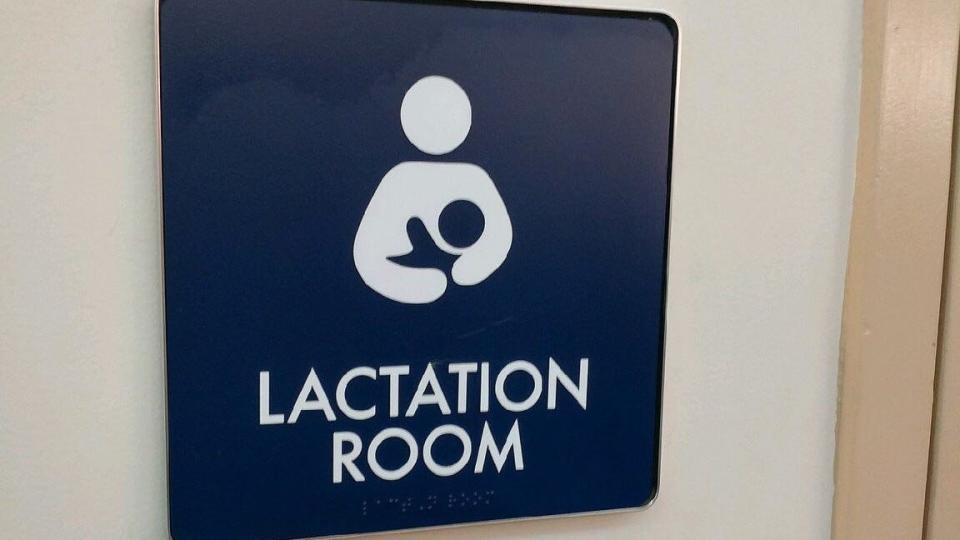Nursing mothers' rights violated at Michigan Ram Trucks plant, investigation finds
Nursing mothers at a Ram Trucks assembly plant in Michigan were forced to wait up to 20 minutes to access lactation rooms in some cases, and investigators were told that the company required a doctor’s note and child’s birth certificate in order to use the rooms, which is improper, according to the U.S. Department of Labor.
As a result, workers at the Stellantis plant, which produces the popular Ram 1500 pickup, weren’t able to express breast milk when needed, according to a release.
The Labor Department launched its investigation last year in response to an allegation that a worker was expressing breast milk on the factory floor after being denied access to a lactation room.
Investigators with the department’s Wage and Hour Division found that there weren’t enough rooms and that at the time of the investigation, 19 nursing mothers shared access to four, one-person lactation rooms at the plant, the release said.
As of December, the plant in Sterling Heights employed 6,785 workers — 6,459 hourly and 326 salaried — on three shifts, according to the company.
Breastfeeding laws: Know your rights as a nursing mom in public and at work
Employees repeatedly couldn't pump breast milk when needed
In response to the department’s finding that the company, which also owns the Jeep, Dodge, Chrysler and Fiat brands, had violated the rights of nursing mothers, Stellantis agreed to add lactation rooms and correct its break policy to avoid future violations, the release said.
“The outcome of this investigation, and Stellantis’ changes at its Sterling Heights assembly plant will have a significant impact on current and future nursing mothers by removing barriers that make it difficult to balance their child’s nutritional needs with their workplace duties,” Wage and Hour Division Director Timolin Mitchell said.
The release noted that employers are required to provide a reasonable amount of break time so nursing mothers can express milk as often as needed and provide an appropriate location.
Stellantis did not have a designated time limit in its policy and that was not the issue in this case. The department noted that the frequency and duration of breaks a nursing mother needs varies.
"In this situation, employees repeatedly and consistently stated they were unable to express 'when needed' due to the limited space," according to an email from Rhonda Burke, the deputy director of public affairs for the department's Chicago office.

When asked about the timing of the investigation, the department responded that "initial contact was made with the employer on June 30, 2022. The final conference was held on Sept. 26, 2022." The department did not provide a response to a question about whether similar investigations had been conducted at other automakers or suppliers.
It's not clear how many lactation rooms would be added as part of the agreement between the department and Stellantis.
Stellantis says employee health a top priority
A statement from the company, provided by spokeswoman Jodi Tinson, did not address that issue or a few other questions, including why the company required the doctor's note and birth certificate to use the lactation rooms:
"Employee health and wellness is a top priority for Stellantis. We continually assess the need for additional dedicated lactation rooms in each of our locations. We are committed to providing a private, comfortable place for women to express milk."
A message seeking comment was also sent to a UAW spokeswoman.

An additional point the department made about lactation rooms is that if the location isn’t solely for use by nursing mothers, it must be available whenever needed and be shielded from view as well as be inaccessible by others.
Recent changes in federal law have extended the rights to pump breast milk at work to more women in a range of occupations, the Labor Department noted, highlighting teachers, farmworkers and care workers.
The Providing Urgent Maternal Protections for Nursing Mothers Act, or PUMP Act, means more workers in additional industries are protected under the provisions of the Fair Labor Standards Act, and it extends remedies for addressing violations, the release said.
Employers or workers who have questions about these issues can call a free help line (help is available in 200 languages) at 1-866-4-USWAGE (866-487-9243), according to the department.
Contact Eric D. Lawrence: elawrence@freepress.com. Become a subscriber.
This article originally appeared on Detroit Free Press: Labor Department: Ram Trucks maker violated rights of nursing mothers

